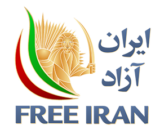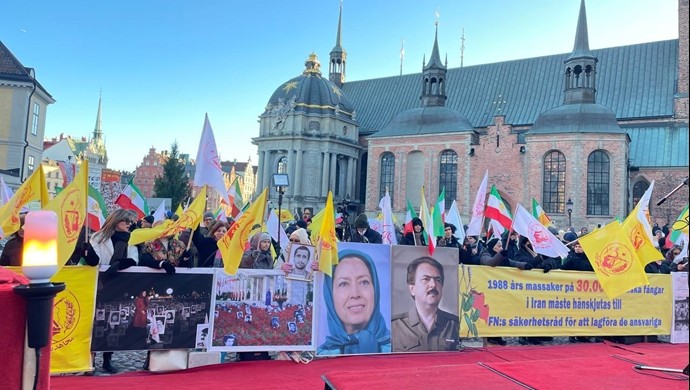The Swedish Appeals Court in Stockholm has upheld the life sentence of Hamid Noury, a former prison guard in Gohardasht prison, Karaj, on trial for his involvement in the 1988 massacre of political prisoners in Iran.
In the summer of 1988, under a fatwa from regime supreme leader Ruhollah Khomeini, Iran’s prisons were purged of all political prisoners. More than 30,000 prisoners were hanged in the span of a few months, most of whom were PMOI members and supporters.
The Swedish Court of Appeals condemned Hamid Noury, one of the perpetrators of the #1988Massacre of political prisoners in #Iran. Now, it is more imperative than ever to prosecute Khamenei, Raisi, Ejei, and other masterminds and perpetrators of the massacre.
— Maryam Rajavi (@Maryam_Rajavi) December 19, 2023
The persistent… pic.twitter.com/opdPqiFmhM
Noury was arrested during a trip to Sweden and was put on trial based on the Universal Jurisdiction principle. On July 14, 2022, a court in Stockholm, Sweden, sentenced Noury to life in prison for committing serious crimes against international law and murder.
During the trial of Hamid Noury, which lasted over nine months and 92 sessions, many survivors, witnesses, and relatives of the victims of the 1988 massacre gave harrowing accounts of the atrocities committed in Iran’s prisons. A part of the trial was held in Durres, Albania, where members of the PMOI in Ashraf 3 testified about the crimes of Noury and other regime authorities.
The appeals verdict comes while the regime has tried to blackmail European authorities through hostage-taking and political pressure.
Freedom-loving Iranians and supporters of the People’s Mojahedin Organization of Iran (PMOI/MEK) held a rally in front of the Court of Appeals, calling for the prosecution of all regime officials involved in the 1988 massacre and other crimes against humanity.
In a statement, the NCRI Judiciary Committee welcomed the ruling and emphasized “the urgency of prosecuting Ali Khamenei, Ebrahim Raisi, and other officials, and perpetrators of the 1988 massacre, genocide, and four decades of crimes against humanity in international courts.”
“Impunity for those involved in the biggest massacre of political prisoners since World War II encourages the continuation of crime by this regime not only in Iran but in the region and the world,” the statement reads in part.
Mrs. Maryam Rajavi, the president-elect of the National Council of Resistance of Iran (NCRI), called for the prosecution of “Khamenei, Raisi, Ejei, and other masterminds and perpetrators of the massacre.”
“The persistent impunity of these criminals, whose records are filled with crimes against humanity and genocide over four decades, only encourages further crimes in Iran and abroad,” she said.
This verdict is a big victory for the people of Iran and their organized resistance movement, who have been calling for the regime to be held to account for its crimes. This is a victory for the families of the victims, who were never told of the location their loved ones were buried. This is a victory for the survivors of the regime’s atrocities.
And it is a victory for freedom-loving Iranians and supporters of the Iranian Resistance who, from August 2021 to November 2023, held 121 demonstrations, rallies, protest actions, and press conferences outside both courts in Stockholm. Many of these rallies and demonstrations occurred under adverse weather conditions, even with temperatures as low as minus 20 degrees Celsius.
When Iranian officials were massacring thousands of PMOI members and supporters in its prisons, they thought that they would be able to extinguish the voice of freedom. But today, their crimes are catching up to them, and thanks to the efforts of the Iranian Resistance, they will not be safe wherever they go. The implications of this court case can already be seen in recent events, such as Ebrahim Raisi canceling his trip to Geneva in fear of judicial action by the Iranian Resistance.
This is but one of the many steps that need to be taken to hold the regime of Iran to account for its numerous crimes against the people of Iran and the world. Ultimate justice will be served when the regime is overthrown and the people of Iran achieve their dream for a free and democratic republic.

